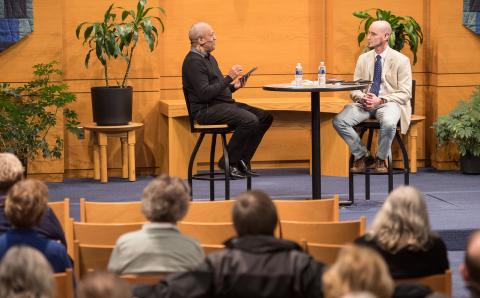He validated his agnosticism by naming all the ways “the church” and “Christianity” had hurt people: racism, sexism, colonialism, sexual abuse. . . .
After giving him plenty of time to say what he needed to say, I said, “Ben*, you’ve been distracted.” He looked at me, confused. “You’ve spent a lot of time looking at the weaknesses of Christianity and the church, and I know there are plenty. But they have distracted you from what really matters.”
He listened intently.
“Everything depends on whether or not Jesus rose from the dead. If he didn’t, then all of us here”—I waved my hand to indicate the Christian college campus—“are idiots. But Ben, if Jesus did rise from the dead, then everything is different.”
Ben’s temptation is common. We can become despondent at what “the church” or “Christians” are doing or not doing in this world. But here’s the thing: Everything depends on whether or not Jesus rose from the dead.
So did he?
Historians have been trying to answer that question ever since Easter morning: What actually happened? The opposing forces did their best to come up with an alternative story immediately: “You must say, ‘His disciples came by night and stole him away while we were asleep’” (Matt. 28:13, NRSV). But that doesn’t align with the state the disciples are in: They are confused. The women come back from the tomb joyful and speaking of angels, and the others look at them as if they are crazy. Luke puts it this way: “These words seemed to them an idle tale” (Luke 24:11, NRSV). When a handful of sleep-deprived women come back from a cemetery flushed and bleary-eyed, talking about angels and Jesus and resurrection, you’re going to be a bit skeptical. Because resurrections don’t happen.
The reluctance of Jesus’ dearest friends to believe in the resurrection points to its veracity. If you were making this up, wouldn’t you have all the disciples, Jesus’ mom, the women who sat at his feet, a Roman centurion, and a Pharisee all there to witness it? Frankly, if this were made up, it would have been a better story. As it is, the disciples are bewildered.
Until Jesus shows up. “Shalom,” he says, and asks for something to eat. They are stunned. And then he shows up again. And again. He spent 40 days showing up, teaching them, and showing them the connections between the Scriptures and his life (Luke 24:36-49).
In all of the gospels, the disciples don’t ask, “Hey, when will you show up again?” “Hey, Jesus, Thomas wasn’t here. Can you come back when he is?” They make no recorded attempt to manipulate the experience or to tell Jesus this would be much more impressive if he did it in the temple courts. The disciples are so perplexed that an actual resurrection has happened in their midst that they simply receive it. With befuddlement and joy and a little fear. They receive this crazy truth that Jesus rose from the dead.
There are books that do an incredible job at proving the resurrection of Jesus. But start with these four: Matthew, Mark, Luke, and John. In the disciples you will see yourself: befuddled, joyful, fearful, even doubting (Matt. 28:17). If they were making this up, they would have written a better story. Instead, they simply wrote the truth.
I ended my conversation with Ben by inviting him to read the gospels. He admitted that he hadn’t read the Bible in a long time and had avoided learning about Jesus. Ben’s story isn’t over. There could be some resurrection ahead.
*Not the student’s real name; a compilation of a few different students.
About the Author
Mary Hulst is university pastor for Calvin University and teaches at Calvin Theological Seminary, Grand Rapids, Mich.








